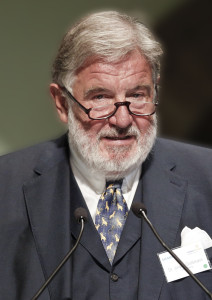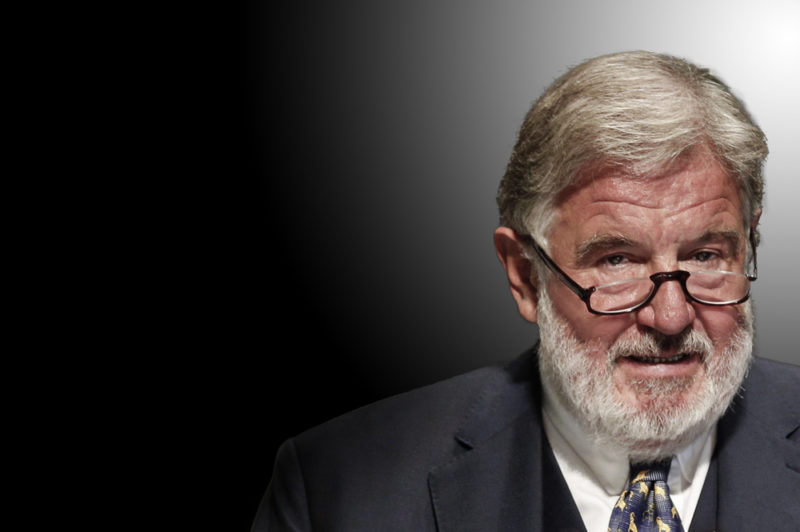
There are little more than a hundred days left to convince the British that their future lies in Europe. That’s not very much time given all the negative factors. Public opinion seems to be leaning towards Brexit; only about 20 percent are still undecided.
Both big parties are, at best, unenthusiastic about Europe. Labour is led by a former Eurosceptic, and the Conservatives are split with London’s popular mayor Boris Johnson leading the anti-European campaign. The press is highly Eurosceptic as well. Under these conditions, will Prime Minister David Cameron truly live up to his promise of campaigning for EU membership “with all my heart and all my soul”?
Clearly, the referendum now set for June 23rd is going to be a tight race which could very well end up with Britain leaving the EU after more than four decades of membership. For all of us at United Europe, that is a horrible scenario. It would be terrible for Britain, and it would be terrible for the rest of Europe as well.
Britain’s essential role in Europe
I believe the best way of keeping Brexit from happening is to actually say what we want Europe to be. Of course, people can still walk away if they don’t like our vision for Europe. But they won’t be dragged down the wrong path simply because they aren’t paying attention, haven’t thought about matters or don’t know the facts out there.
Look at the Scotland referendum and the emotions that were raised during that campaign. To win the referendum on Europe – to win it in the UK, but also on the continent where disappointment with Britain is leaving some bitter traces – we need to believe in Britain’s essential role in Europe, both economically and politically.
Let me start with the easier part, the economy. Is Britain better off within the EU or outside it?
A study of Britain’s relative decline
A study drawn up by the Centre for Economic Policy Research gives an interesting historical perspective. At first, Britain was much better off than the continent. In 1950, the year that the Labour government refused to join the European Coal and Steel Community, its GDP per capita was about a third higher than that of Europe’s six founding members.
Yet as the Europe’s six founding members rebuilt and moved closer together, creating a more dynamic space, they first caught up and then overtook the UK economically. In 1973, when Britain finally joined, their GDP per capita was ten percent higher than in the UK. In fact, the British economy was doing so badly that Britain became known as the sick man of Europe.
With Britain’s entry into the EU, this relative economic decline ended. When recovery came, Britain benefited as much as the continentals. To this day, there is still a gap in GDP with the original six, but it has stopped widening. On that evidence, joining the EU really has worked for Britain.
What’s good for Europe
At the same time, Britain has brought a unique perspective and enormous talent to the EU. This is the country that invented free trade and the market economy. This is the country with the longest democratic tradition, the keenest sense of the division of power and one of the best public services in the world. This is a country of good manners and common sense.
An EU without Britain would be much more under the influence of the French, the Italians and the Spaniards – great people, but people with an etatist leaning that is likely to translate into more Brussels bureaucracy.
Yet Europe desperately needs to become more competitive, and Europe needs to engender more growth. In that, David Cameron is entirely right. Completing the single market, negotiating TTIP – those are good things for Europe. The likelihood that they will happen in an EU without Britain, however, is very low.
“Head, not heart”
Now for the political argument. This is more difficult because we do really tick differently. The memory of the two world wars that devastated our countries in the 20th century is no dimmer in the UK than across the channel. Yet Europe’s narrative of war and peace has never resonated in Britain.
In one of his speeches on Europe, Prime Minister Cameron gave a telling description of his attitude on EU membership. “Like most British people, I come to this question with a frame of mind that is practical, not emotional,” he said. “Head, not heart. (…)We see the European Union as a means to an end, not an end in itself.”
On the continent, Helmut Kohl and Francois Mitterrand made history by holding hands over the graves of Verdun. It is precisely because the Franco-German couple embodied reconciliation that it was able to shape European integration.
Europe’s narrative of peace and prosperity
It’s not that continental Europeans can’t be narrow-minded, egotistical and short-sighted. They are, and far too often. They wouldn’t want to be members of the European Union, either, if membership did not present clear benefits to them. Yet at some level most of them share a belief that there also is a greater good at stake.
Much has been said about the need for a new narrative. I don’t agree with that. There are plenty of people who fervently believe that Europe safeguards peace, stability and prosperity. For the millions of people who risk their lives to flee to our continent, Europe’s old narrative seems to work perfectly well.
Stay with us!
What we need to do much more urgently than argue over a new narrative is to look at Europe on a global scale: We are a small continent with a rapidly declining share of the world’s population. But we are still far too big to be a Switzerland. Terrorist attacks in Paris and elsewhere show that we cannot ignore the world.
Yet if we want Europe to influence the world’s future, we need to know who we are. We need to re-assert our values – human rights, democracy, tolerance, the rule of law, the separation of state and religion. Neither Britain nor any other EU country can hope to do that on its own. We need to stand together and we need to be able to put up a fight for what we believe in. We need to be effective about defending our interests in the world and at home. And for all of that, we must have Britain with us.
Jürgen Grossmann is owner of the steel group Georgsmarienhütte and co-founder and treasurer of United Europe



